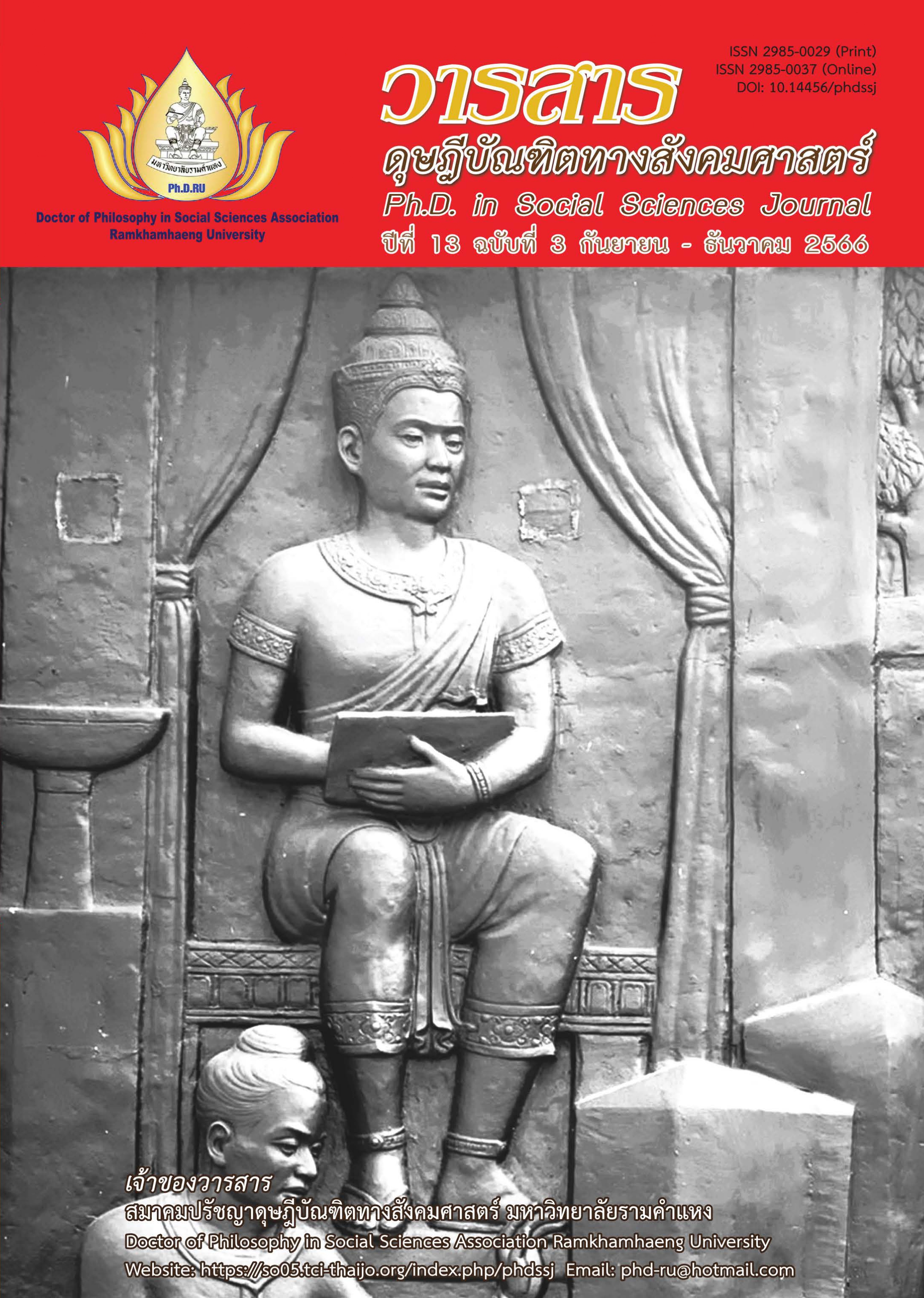The Influences of Content Marketing and Influencer Marketing on Brand Loyalty: The Mediating Roles of Brand Self-Expressiveness & Brand Jealousy: Case Study of Apple Brand
Main Article Content
Abstract
This research article aims to study the direct and indirect influence of the following groups of variables, Content Marketing, Influencer Marketing, Brand Self-Expressiveness, Brand Jealousy, and Brand Loyalty. It is quantitative research. Select the cluster sampling method by collecting data from Thai consumers who use the Apple brand and use the internet Digital media and social networks in everyday life, who had experience with information presented by Apple and from 460 influential thinkers in the IT field, Tools using online questionnaires and statistics used to analyze the data Descriptive statistics and structural equation analysis.
Findings are as follows: (1) Brand Self-Expressiveness is influenced by Content Marketing (TE = 0.534) and Influencer Marketing (TE = 0.290) respectively. The predictive power of this equation is 57.70%. (2) Brand Jealousy is influenced by Brand Self-Expressiveness (TE = 0.608), Content Marketing (TE = 0.325) and Influencer Marketing (TE = 0.176) respectively. The predictive power of the equation is 37.00%.(3) Brand Loyalty is influenced by Brand Self-Expressiveness (TE = 0.768), Content Marketing (TE = 0.453), Brand Jealousy (TE = 0.319), and Influencer Marketing (TE = 0.201) respectively. The Predictive power of this equation is 68.80%.
Article Details

This work is licensed under a Creative Commons Attribution-NonCommercial-NoDerivatives 4.0 International License.
Academic articles, research articles, and book reviews in the Ph.D. in Social Sciences Journal are author’s opinions, and not the publisher’s, and is not the responsibility of the Ph.D. in Social Sciences Journal Philosophy Association, Ramkhamhaeng University. (In the case that research is done on human, the researcher has to be trained in Ethics for Doing Research on Human Training and has to produce the evidence of the training).
References
Belk, R. W. (1988). Possessions and the extended self. Journal of Consumer Research, 15(2), 139-168.
Bıçakcıoğlu, N., Ögel, İ. Y., & İlter, B. (2017). Brand jealousy and willingness to pay premium: The mediating role of materialism. Journal of brand Management, 24(1), 33-48.
Chioveanu, I. (2008). Advertising, brand loyalty and pricing. Games and Economic Behavior, 64(1), 68-80.
Escalas, J. E., & Bettman, J. R. (2003). You are what they eat: The influence of reference groups on consumers’ connections to brands. Journal of Consumer Psychology, 13(3), 339-348.
Hair, J. F., Black, W. C., Babin, B. J., & Anderson, R. E. (2010). Multivariate data analysis (7th ed.). Pearson.
Hollenbeck, C. R., & Kaikati, A. M. (2012). Consumers’ use of brands to reflect their actual and ideal selves on Facebook. International Journal of Research in Marketing, 29(4), 395-405.
Influencer Marketing Hub. (2021). The state of influencer marketing 2021. Retrieved from https://influencermarketinghub.com/influencer-marketing-benchmark-report-2021
Kaufmann, H. R., Loureiro, S. M. C., & Manarioti, A. (2016). Exploring behavioural branding, brand love and brand co-creation. Journal of Product & Brand Management, 25(6), 516-526.
Keller, K. L. (2001). Building customer-based brand equity. Marketing Management, 10(2), 14-19.
Ki, C. W. C., & Kim, Y. K. (2019). The mechanism by which social media influencers persuade consumers: The role of consumers’ desire to mimic. Psychology & Marketing, 36(10), 905-922.
Leibtag, A. (2014). The digital crown: Winning at content on the web. Elsevier.
Loureiro, S. M. C., Ruediger, K. H., & Demetris, V. (2012). Brand emotional connection and loyalty. Journal of Brand Management, 20(1), 13-27.
Luarn, P., Lin, Y. F., & Chiu, Y. P. (2015). Influence of Facebook brand-page posts on online engagement. Online Information Review, 39(4), 505-519.
Ohanian, R. (1990). Construction and validation of a scale to measure celebrity endorsers’ perceived expertise, trustworthiness, and attractiveness. Journal of Advertising, 19(3), 39-52.
Rowley, J. (2008). Understanding digital content marketing. Journal of Marketing Management, 24(5-6), 517-540.
Sarkar, A., & Sreejesh, S. (2014). Examination of the roles played by brand love and jealousy in shaping customer engagement. Journal of Product & Brand Management, 23(1), 24-32.
Srivardhana, T. (2017). Structural equation modeling of self-image congruence, consumer centric, content marketing strategies, and brand loyalty of leading Thai banks’ facebook followers. Journal of the Association of Researches, 22(1), 256-265. [In Thai]
Srivardhana, T. (2019). Facebook posts for active engagement in Starbucks’s fan page: The mediating roles of brand self-expressiveness and brand jealousy. SVIT Journal, 5(2), 400-417. [In Thai]
Zeithaml, V. A., Berry, L. L., & Parasuraman, A. (1996). The behavioral consequences of service quality. Journal of Marketing, 60(2), 31-46.


